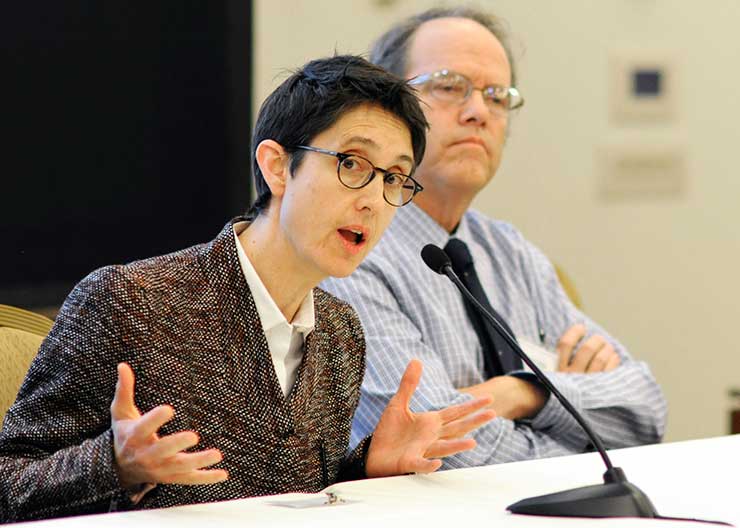
Celebrating sex inclusion in research
Northwestern Medicine celebrated the one-year anniversary of the NIH mandate that research funding is contingent upon the inclusion of female cells or animals in studies.
Teresa Woodruff is a driving force in the science world. She has appeared on Time magazine’s list of most influential people and has received a Presidential award at the White House from Barack Obama. She directs Northwestern’s Center for Reproductive Science and its Women’s Health Research Institute, which she founded.
In addition to teaching and research, Woodruff, the Thomas J. Watkins Memorial Professor of Obstetrics and Gynecology at the Feinberg School of Medicine, has become a key advocate for the improvement of U.S. health policy. In 2016 she helped persuade the National Institutes of Health to change its policy so that females — from animals to people — must be considered in all NIH-funded studies.
“It will revolutionize the way drugs and medical devices are developed, and medical treatment and diagnoses will be enormously different to the advantage of both women’s and men’s health,” she said.
At a Northwestern press conference in fall 2016, NIH director Francis Collins called studying both genders “a critically important issue” and said it has already reduced health care costs “140-fold” by showing what works and what doesn’t work.
“When we look back 10 years from now, we’ll have a whole range of achievements that wouldn’t have happened if it weren’t for sex inclusion,” said Woodruff, founder and director of the Women’s Health Research Institute (WHRI).

Northwestern Medicine celebrated the one-year anniversary of the NIH mandate that research funding is contingent upon the inclusion of female cells or animals in studies.

Northwestern magazine profiles Teresa Woodruff, whose pioneering research in oncofertility offers young cancer survivors options to have children.
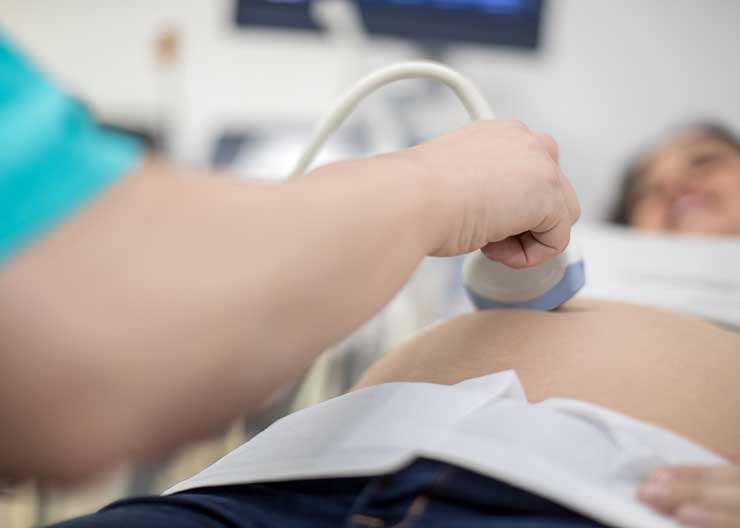
Major physician organizations have all recognized the importance of fertility counseling and preservation in cancer care. Now legislators need to act, writes Steve Xu and Jessica Walter of Feinberg.
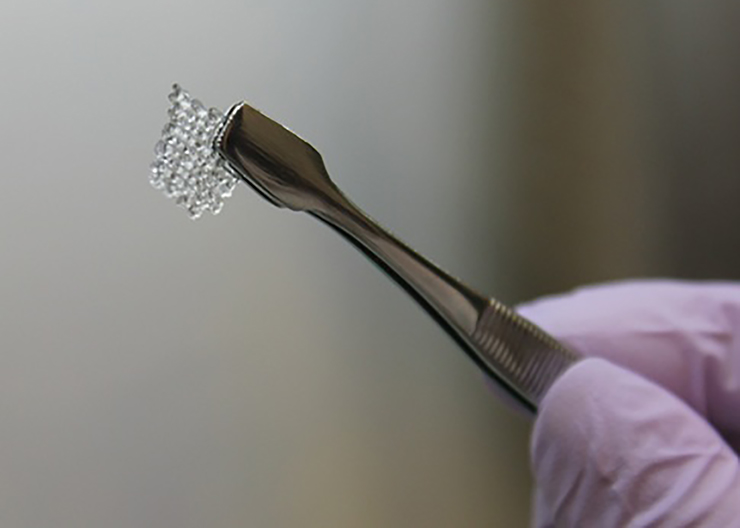
The new world of 3-D printed organs now includes implanted ovary structures that actually ovulate.
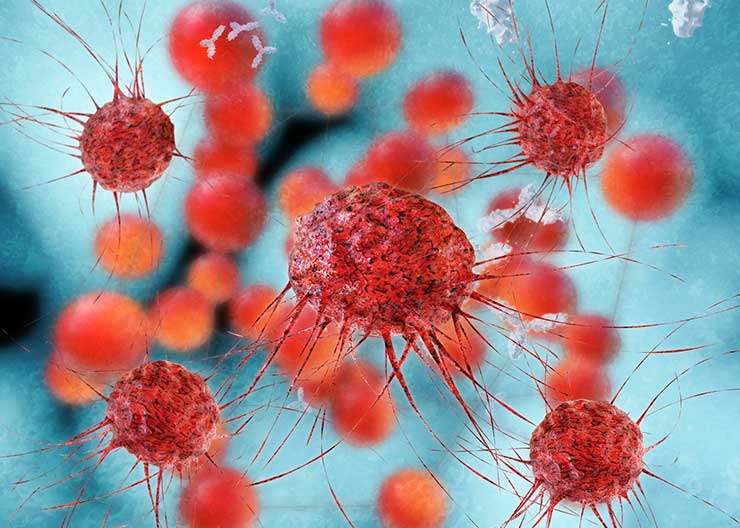
Northwestern Medicine scientists have proposed a new marker to identify ovarian cancer stem cells, which may lead to the development of new drugs to target those cells for eradication.
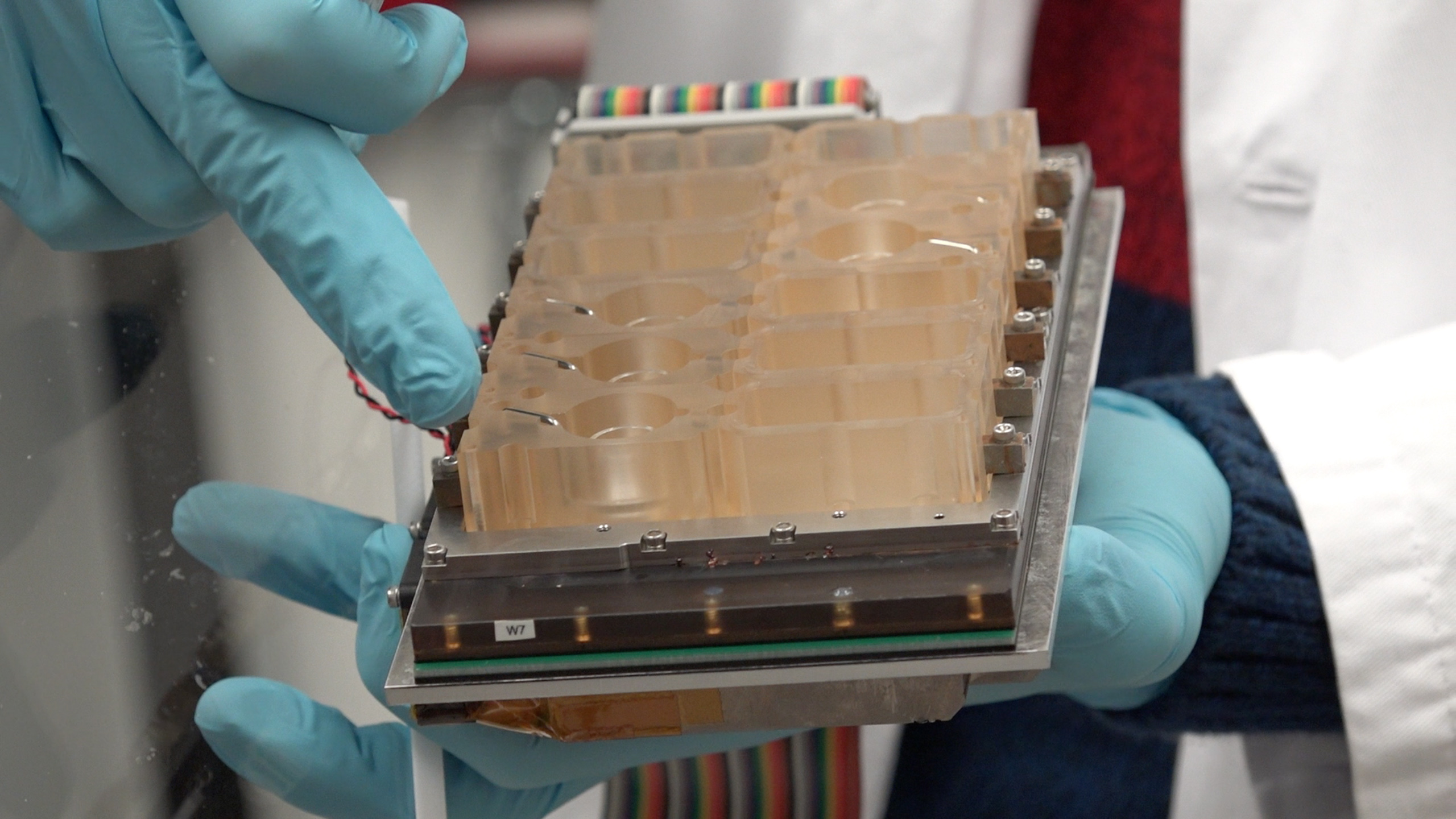
Northwestern Medicine has developed a female reproductive tract that fits in the palm of your hand and could change the future of research and treatment of disease.
Published: July 14, 2017. Updated: February 01, 2018.
Back to top